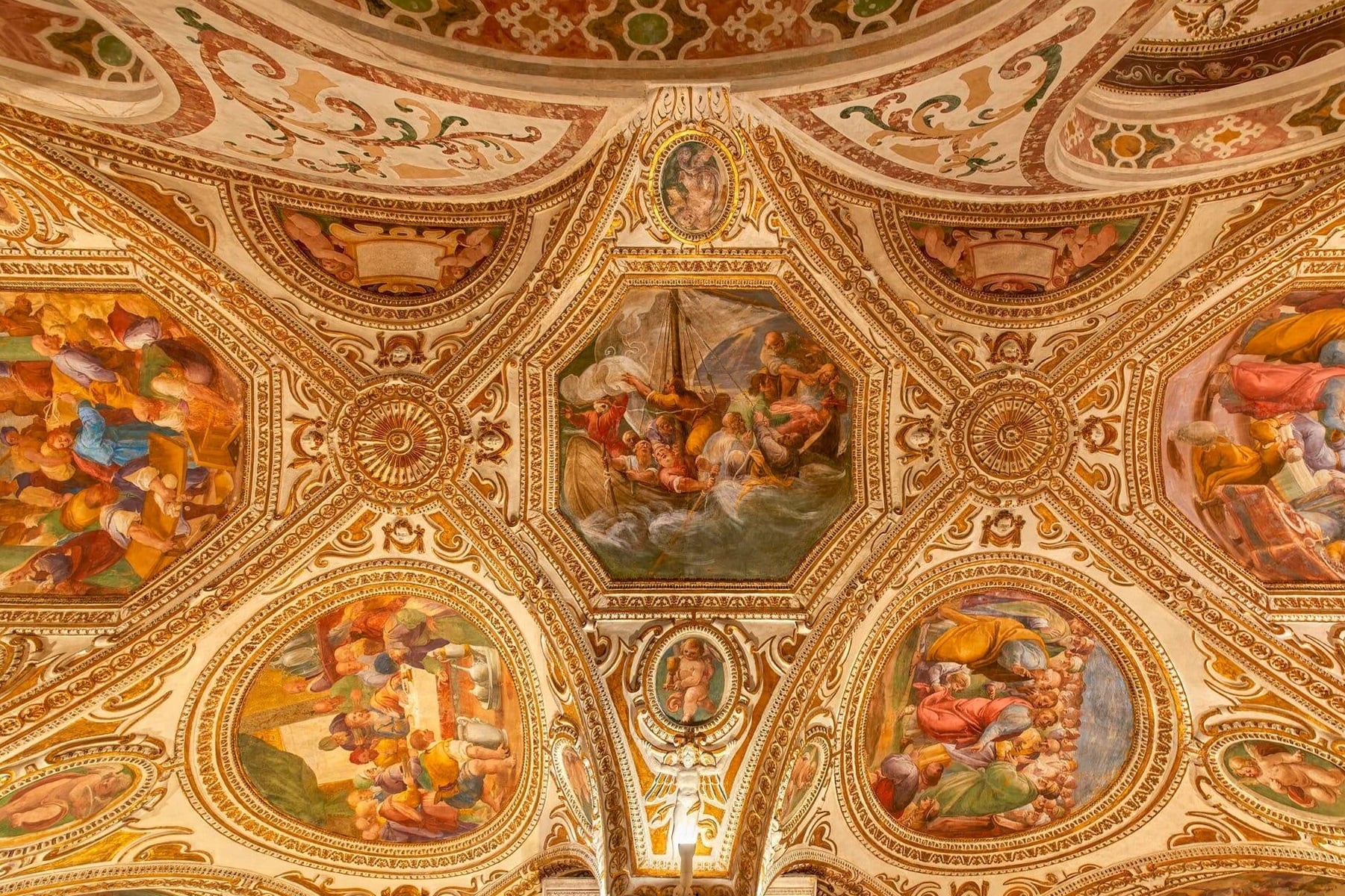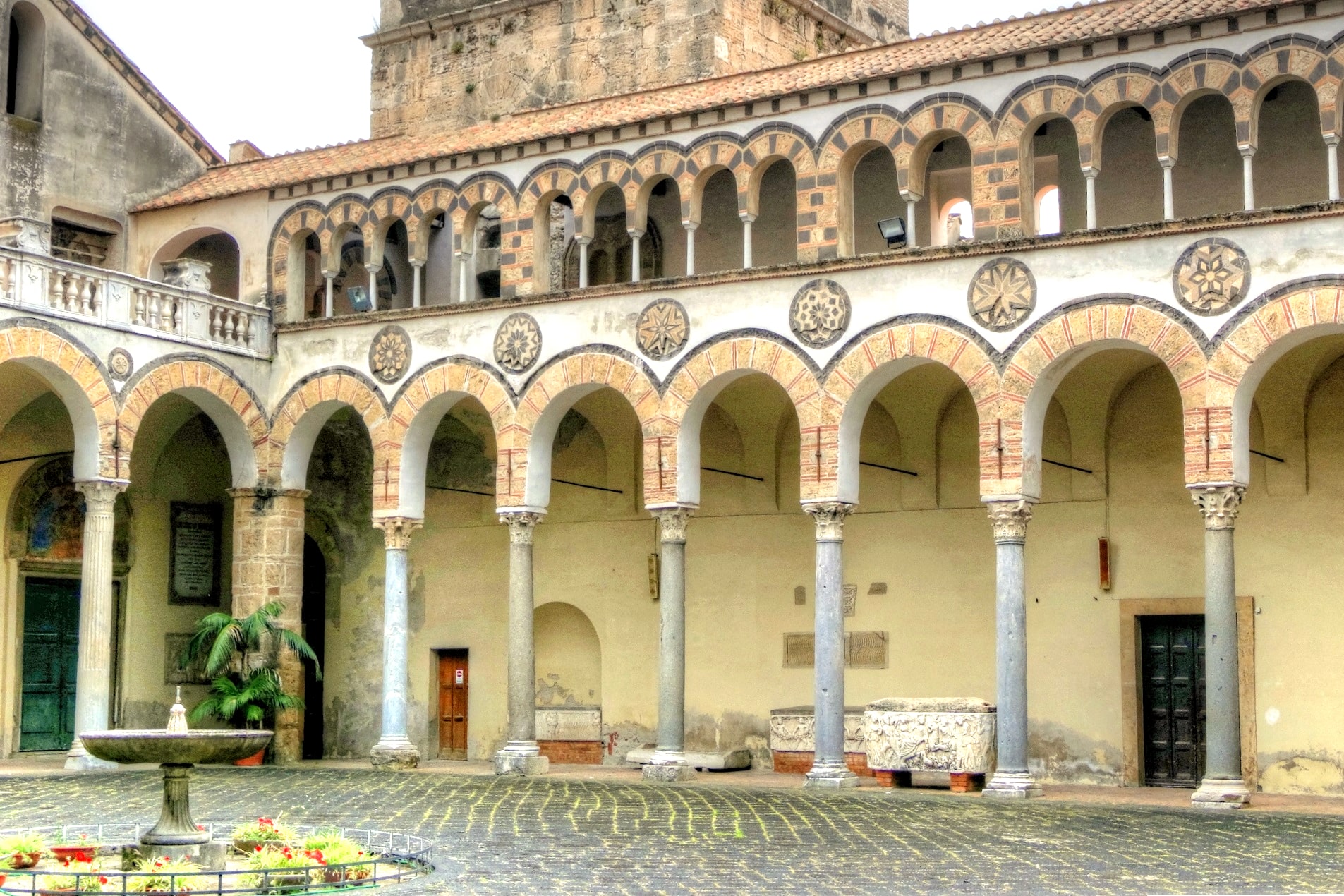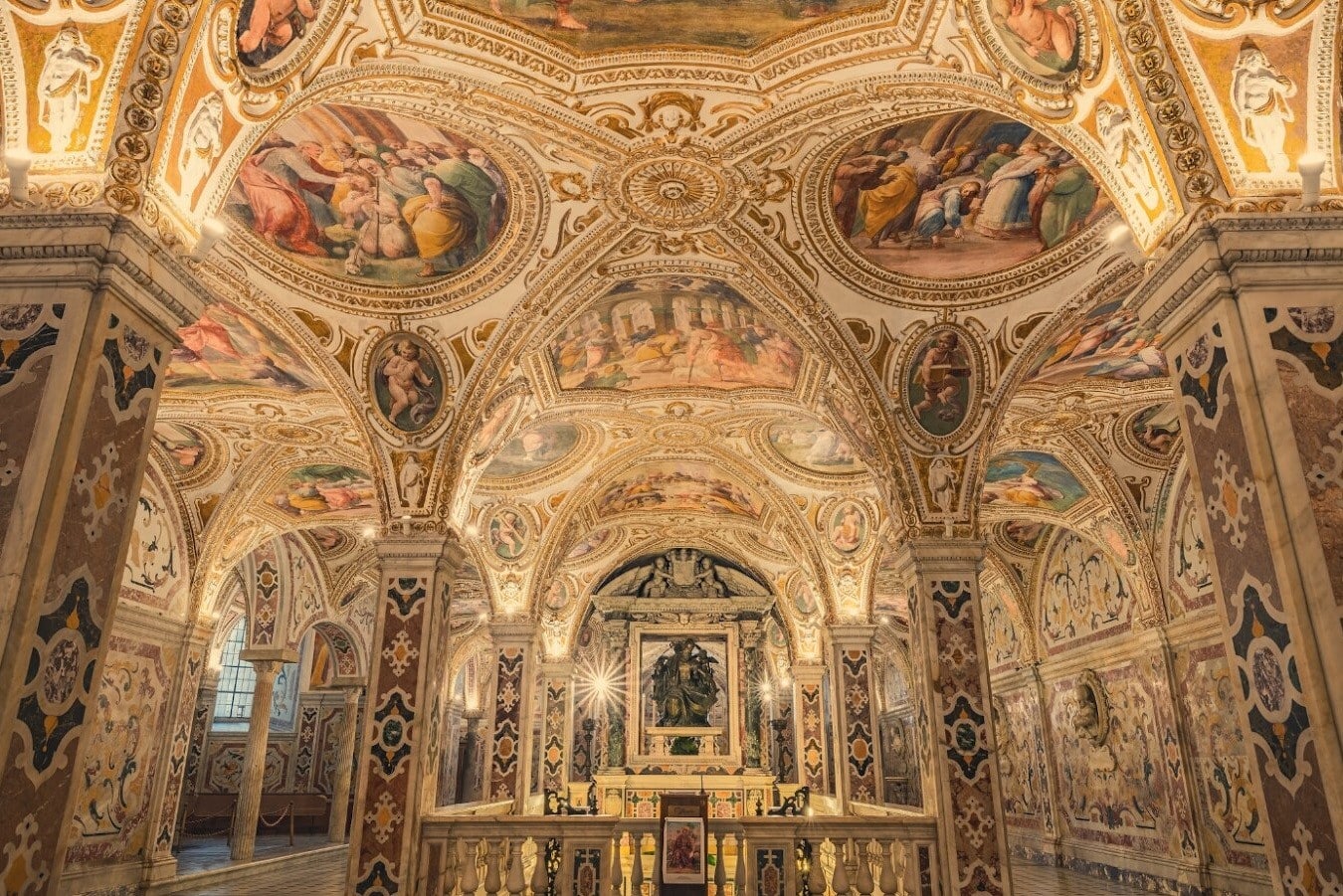Cathedral of Salerno
The cathedral of Salerno is the main church in the city of Salerno, Campania, and is one of the main attractions of the city of Salerno. The cathedral's crypt houses the relics of St. Matthew, the city's patron saint.
The Cathedral of Salerno: history
St. Matthew's Cathedral in Salerno, or the Cathedral of Salerno, was built in the period between 1080 and 1085, during the time of Archbishop Alfano I, a poet and physician of the Salerno Medical School, i.e., immediately after the conquest of the city of Salerno by Robert Guiscard. At the end of its construction in 1084, the church was consecrated and inaugurated by Pope Gregory VII, officially in exile in Salerno.
The remains of St. Matthew were found in 165 and later underwent solemn translation to Salerno in 954 at the behest of Prince Gisulph I. They were originally placed in the ancient early Christian church dedicated to St. Mary of the Angels, which lay under the present cathedral structure, and were then placed in the crypt of the nascent church of Salerno, which later became Salerno Cathedral.
The present structure is the result of numerous renovations, in fact it after the earthquake of June 5, 1688, was completely renovated and rebuilt by three Italian architects, namely, Ferdinando Sanfelice, Arcangelo Guglielmeli and Carlo Buratti.

Salerno Cathedral: composition of the cathedral
The structure of the Salerno cathedral is inspired by the abbey of Montecassino, at the behest of the Archbishop of Salerno Alfano I, who was a frequent visitor to the latter.
The cathedral of Salerno conceived by Alfano I presented a plan articulated in a longitudinal body with three naves and a horizontal one, the transept, with three apses and quadriporticus. The first element of novelty introduced by Alfano I in comparison with the churches of central southern Italy is given by the shape of the aula crypt with the space punctuated by columns and with the apses corresponding with those of the upper transept.

The facade of the Salerno cathedral
The cathedral of Salerno is presently preceded by a baracco exterior facade and an attached staircase. From the ancient design remains the portal, known as the Lion's Gate, as on either side of the jambs are two stadia depicting a lion (a symbol of Christ's strength and power to condemn) and a lioness with a suckling lion (a symbol of Christ's saving charity and Mercy).
The quadriporticus of the Salerno cathedral: unique in Italy
The portal of the outer facade leads into a large atrium, that is, into the only example of a quadriporticus in Italy, together with the basilica of St. Ambrose. On the atrium of the quadriporticus opens the large bronze door of the church, which was installed in 1099 after being cast in Constantinople.
The bell tower of the Salerno cathedral
Adjacent to the quadriporticus is the monumental Arab-Norman bell tower, which rises about 52 meters. The bell tower consists of four cubic structures with a domed tiburium. The tower's shapes refer to precise biblical symbolism; in fact, there are three planes, a number equivalent to the levels of the universe according to sacred scripture, and the cubic shape reminds you of their physicality. In addition, the turret has a circular shape, which again in the Bible, is equivalent to the otherworldly element. Finally, the eight bells installed on the tower today date back to different historical periods, from the Middle Ages to the 1800s.
The crypt of the cathedral of Salerno
The crypt holds the mortal remains of St. Matthew. Legend of the translation has it that the relics were brought to Salerno by Gisulph I in the 10th century and later in 1081, when the new cathedral dedicated to the evangelist was built, they were laid in the crypt intended to house them. The crypt of Salerno Cathedral in the Baroque style was restored in the 17th century. In addition to guarding the tomb of St. Matthew, the Salerno crypt holds the remains of the Salerno Martyrs Fortunatus, Gaius, Ante and Felix, and the relics of the Holy Confessors.

Opening hours of the Salerno Cathedral
DAY | OPENING HOURS |
|---|---|
Monday | 09:30 - 19:00 |
Tuesday | 09:30 - 19:00 |
Wednesday | 09:30 - 19:00 |
Thursday | 09:30 - 19:00 |
Friday | 09:30 - 19:00 |
Saturday | 09:30 - 19:00 |
Sunday | 09:30 - 19:00 |
NOTE: Access to the cathedral is allowed only to visitors dressed decently, that is, without low-cut clothing, shorts and inappropriate clothing.






